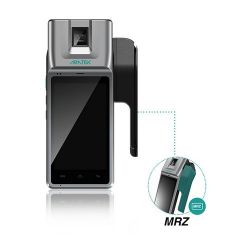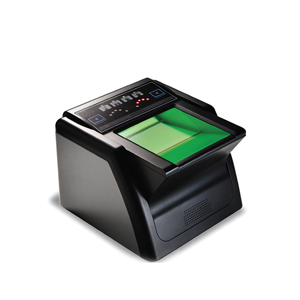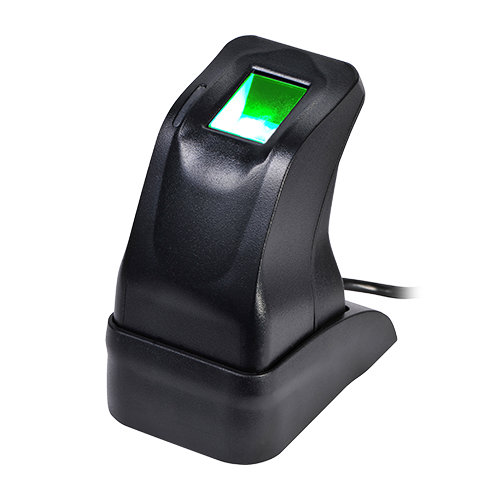
BIOMETRIC FINGERPRINT SCANNERS: BENEFITS & USES
Biometric fingerprint scanners have grown in popularity recently because they are a highly reliable and safe method of verifying people. These devices are a highly secure form of authentication since they employ distinctive fingerprints to recognize and validate users’ identities.
The consent and validation of people are one of the most crucial components of security, which is why so many businesses are utilizing biometric input devices. Biometric scanners are used for many reasons, including attendance tracking, authentication process tracking, and even time limit metering, and are increasingly important components of multifactor authentication. These are well-known access control and security measure present in a wide range of high-quality goods available on the market. It’s quick and easy to use, and it could easily take the place of or add to those complicated passwords.

Here are some of the key benefits of biometric fingerprint scanners:
- Improved Security: Biometric fingerprint scanners offer a high level of security because each person’s fingerprints are distinctive and difficult to copy or fake. Virtually eliminating unwanted access to critical data or systems lowers the possibility of data breaches and cyberattacks.
- Convenient and Quick: Biometric fingerprint scanners are incredibly quick and easy to use, making them quite convenient. This makes it a speedier and more effective way of authentication since users no longer need to carry physical tokens or remember passwords.
- Accuracy and Reliability: Biometric fingerprint scanners are very reliable and accurate, which lowers the possibility of making a mistakenly positive or negative identification. This minimizes the possibility of errors and inaccuracies while ensuring that only authorized persons have access to critical information and systems.
- Cost-Effective: In the long term, biometric fingerprint scanners can save money because they do away with the need for pricey password management systems and help to lower the cost of monitoring and safeguarding access to critical data and systems.
- Simple to Use: Biometric fingerprint scanners are generally simple to use and implement, which makes them perfect for a variety of applications. Biometric fingerprint scanners can be easily integrated into current systems, whether you’re trying to safeguard physical access to a building or electronic access to critical information.
The access and exit procedures at an increasing number of Large companies now rely on biometrics. Because biometrics is a complicated topic because there are several methods of performing biometric verification, such as facial and iris recognition, vascular pattern detection, and even fingerprints.

Let us look at some of the key uses associated with this growing component of a multifactor authentication device. A biometric fingerprint scanner is widely used for various purposes, including:
- Physical Access Control: For regulating physical access to buildings, rooms, or other restricted places, biometric fingerprint scanners are frequently utilized. To allow only authorized people access, they can be integrated with door locks.
- Time and Attendance Management: Since biometric fingerprint scanners offer a precise and dependable technique to detect when employees enter and depart from the workplace, they also track employee attendance.
- Computer Login Authentication: Biometric fingerprint scanners are a safe and secure way to access sensitive information on computers, laptops, and other devices.
- Point of Sale (POS) Systems: In retail settings, biometric fingerprint scanners are frequently used to authenticate transactions and ensure that only authorized users have access to POS systems and sensitive data.
- Banking and financial services: To ensure secure access to confidential financial data and transactions, the banking and financial services sectors use biometric fingerprint scanners.
- Health Care: To ensure that only people with permission can access private patient information, biometric fingerprint scanners are also employed in the health care sector.
- Government and Military: To protect access to sensitive data and systems, government and military institutions use biometric fingerprint scanners.
- Education: To monitor student attendance, manage access to restricted areas, and uphold the confidentiality of private data, educational institutions use these scanners.
- Law enforcement: To restrict access to confidential information and to uphold the security of crime scenes, law enforcement organizations use these scanners.
- Automobile sector: Biometric authentication is being used in a variety of different businesses because of its adaptability, accuracy, and ease. Automobile manufacturers now lock, unlock, and start automobiles using iris and fingerprint scanners. Until 2024, the automotive biometric authentication market will expand at a 17% Compound Annual Growth Rate (CAGR).
- Corporate institutions and offices: Employers are increasingly embracing biometric authentication in automated and integrated access and security measures. Access to both physical space and network locations can be successfully limited while managing all security data from a single, encrypted place. According to a Spiceworks survey, 57% of firms were employing fingerprint scanners as part of their authentication systems by 2018.

Biometrics: Are They Reliable?
The biometric system can increase corporate security because it is a technological advance that is being perfected with newer technology. It undoubtedly has more advantages than disadvantages, but the system is still far from ideal.
In conclusion, these scanners offer a range of benefits for businesses, organizations, and individuals alike. Their high security, convenience, accuracy, and cost-effectiveness make them an excellent choice for anyone looking to secure access to sensitive information and systems. Whether you’re looking to secure physical or electronic access, they can provide a fast, secure, and reliable authentication method.
